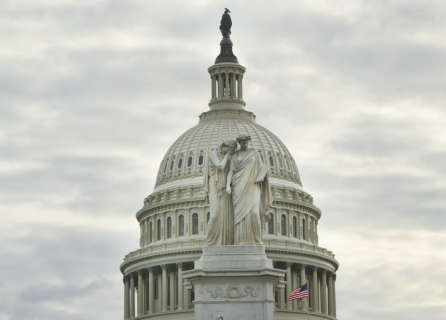WASHINGTON — In October 2013 he went viral after mowing the grass around the Lincoln Memorial during the government shutdown. But now Chris Cox has given up pushing that lawnmower and has turned his attention to pushing Congress to take up a bill that would have a big impact on the tourism industry the next time there’s a prolonged shutdown.
It’s called “The Monuments Protection Act,” and it’s backed by California Republican Congressman Darrell Issa and D.C. Delegate Eleanor Holmes Norton.
The bill was introduced this week.
If passed, the bill would require both the Interior Department and Agriculture Department to work out deals with state and local governments so that “public land, open air monuments and memorials, units of the National Park System, units of the National Wildlife Refuge System, and units of the National Forest System” would be maintained and operated even during a federal shutdown.
For Cox, of Mount Pleasant, South Carolina, it’s really about making sure the iconic monuments and memorials dedicated to America’s servicemen and women along the National Mall remain open no matter what.
Cox called these shutdowns “political” and “unacceptable.”
“These monuments for the most part were approved by Congress. They don’t have entrances and they don’t have exits, so to me it was implied they would never shut down,” Cox said.
“During the lapse of appropriations or for any other reasons, when these memorials like the Vietnam Wall and the World War II Memorial shut down, it’s really an injustice to our veterans,” Cox said.
The impacts of the monuments protection bill would be far more wide reaching and would be a boost to the tourism industry around the country.
Cox cites businesses in Arizona that serve visitors to the Grand Canyon as one beneficiary. But he also noted that the 2013 shutdown had a big impact in the D.C. area.
There were losses of “$17 million a day in lost revenue,” Cox said. “Now that’s not counting the airports, the hotels, the taxi cab drivers, the tour guides. You can’t predict a government shutdown.”
This isn’t the first time Issa and Norton have teamed up together on this bill. In 2014, Cox got them to sign on to a similar measure, but his initial efforts went nowhere.
Some lawmakers worried it would set a precedent where Congress would start picking and choosing winners in a shutdown and put the government on the path of eroding away the downsides of a shutdown and the accompanying urgency Congress should have in preventing one.
Cox said some lawmakers also told him what happened in 2013 would never happen again.
While he doesn’t plan to go back and say “I told you so,” Cox did point out there have been two shutdowns in just the last month.
“There are certain parts of this government we need to keep operating,” Cox said. “This is a win not only for the veterans, but for the country. There’s really no excuse for us to polarize the nation any more than it already is during a government shutdown.”






